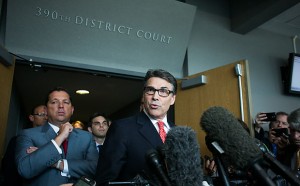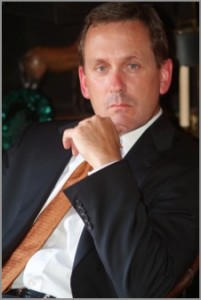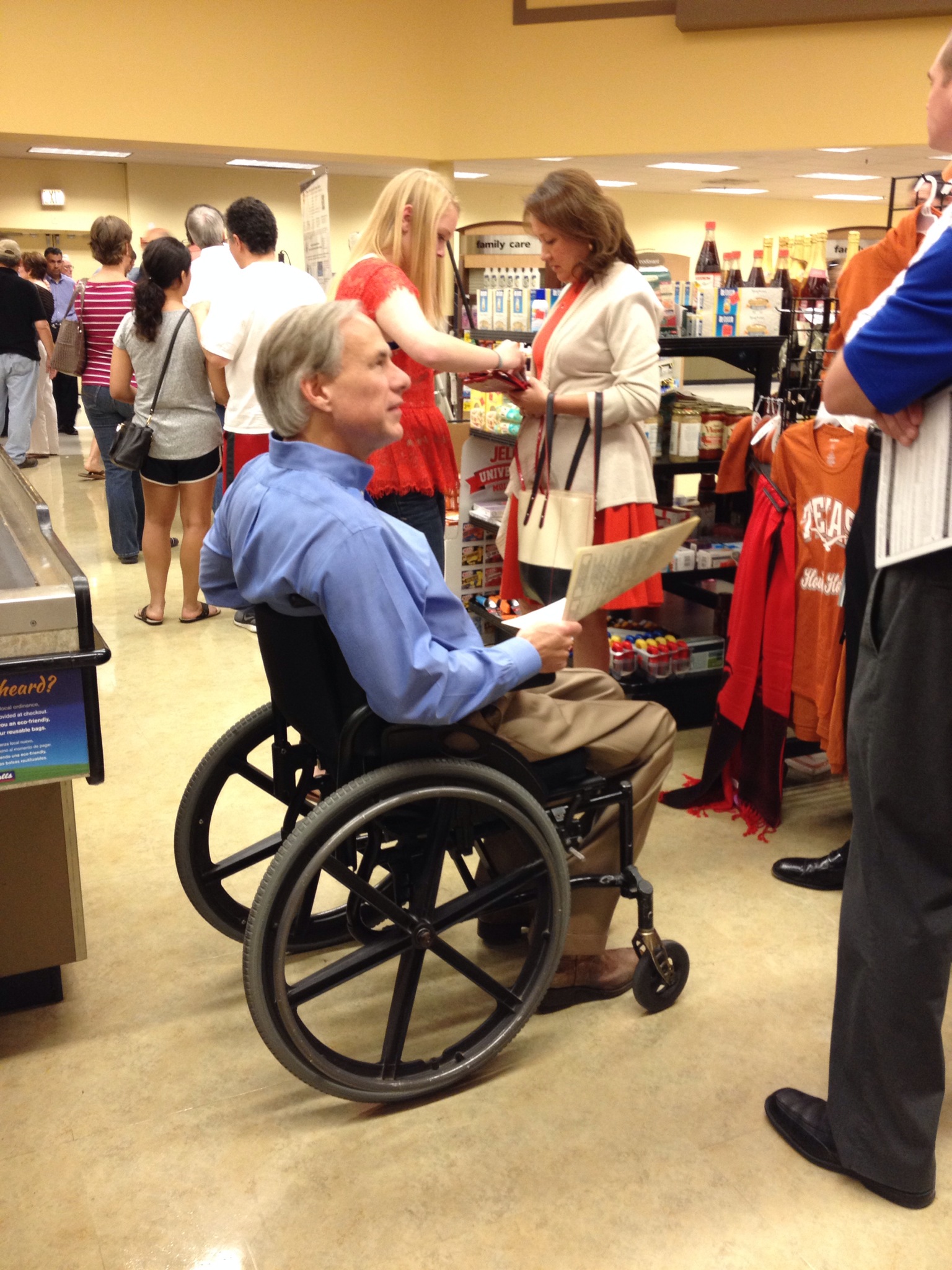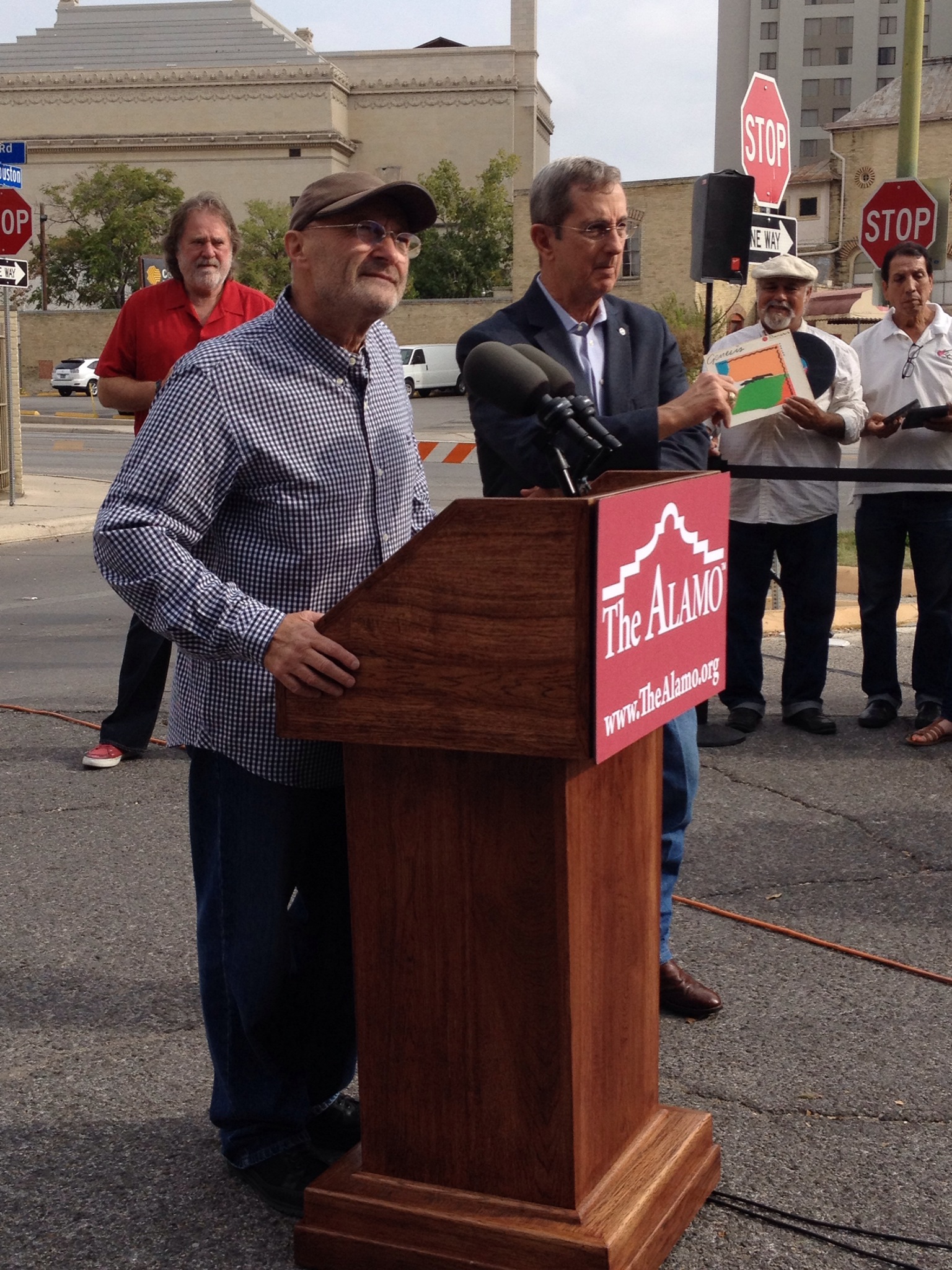Gov. Rick Perry made his first court appearance on Thursday on coercion and abuse of office charges, and said afterwards that he has done nothing wrong.

Texas Gov. Rick Perry, flanked by attorney J. Brett Busby (left), answers questions from reporters Thursday at the Blackwell-Thurman Criminal Justice Center in Austin. (Drew Anthony Smith/Getty Images)
What might have been a routine pre-trial hearing was transformed by a packed courtroom and legal flamboyance.
State district Judge Bert Richardson weighed defense motions to void the charges because of supposed faulty paperwork in the appointment of special prosecutor Michael McCrum. Perry also has asked to view the secret grand jury transcript.
Perry is charged with unlawfully trying to force Travis County District Attorney Rosemary Lehmberg into leaving her office.
Perry has said that he and the public had lost confidence in Lehmberg after she was pleaded guilty to drunken driving.
He relayed to Lehmberg that he would veto $7.5 million for a state anti-corruption unit run out of the district attorney’s office unless she resigned. When she refused to step down, he made good on his threat in June 2013. Perry would have named her replacement.
In his statement afterwards, Perry cast the charges as an attempt to stop him and future governors from exercising their right to veto legislation.
“I stand behind my authority and I would do it again. I stand behind that veto, and I would make that veto again,” he said.
Inside the courtroom, a hearing the judge said he expected to last 15 minutes went on for almost two hours. While Perry sat quietly in a charcoal suit and coral-colored tie printed with miniature dachshunds – a favorite of the governor – his plaintiff’s lawyer Tony Buzbee made a showing.
Buzbee used sweeping statements, a power point presentation and paced before the judge.
“The whole way this came about is a comedy of errors. But it’s not funny,” Buzbee proclaimed.
His argument centered on legal paperwork that was signed and filed, but he believes was not done so in the proper order, correct folder or made readily available.
Buzbee said the Texas Constitution proscribes certain ways oaths and other papers should be handled, and therefore “it should be a slam dunk to dismiss this case.”
“If we start picking and choosing which provisions of the constitution we’re going to follow, then we are in anarchy and chaos,” Buzbee said.
McCrum countered the Perry defense team is throwing up “red herrings” and issuing statements, “clearly made for the media in the courtroom. It’s just malarkey.”
The judge indicated he would rule on the defense motions next week.
Lehmberg has recused herself and her office from participating in the Perry case and so McCrum was appointed by a Republican judge to guide the investigation in 2013.
Perry’s lawyers have argued the special prosecutor didn’t properly sign and file his oath of office and orders of Lehmberg’s recusal.
Buzbee told the court that he knows that his objections are technical and procedural, but vital to the cause of justice.
“If you’re going to take away someone’s freedom, it’s not too much to ask you follow the letter of the law,” Buzbee said.
By filing the paperwork wrong, “He failed to qualify. He cannot act. Game over,” Buzbee said of McCrum.
McCrum said the Perry team is trying to create rules and laws governing how the oath is handled that aren’t in law.
“The law is clear. Our law doesn’t depend on Mr. Buzbee’s or Mr. Perry’s personal situation,” McCrum said.
The defense team also tried to show that the Perry case was handled differently. While the grand jury was still investigating, and before a criminal case had been filed, a number to track the case was created. That had only been done once before – in the case of former House Majority Leader Tom DeLay.
Buzbee indicated that it revealed a political motive in the prosecution.
McCrum said that a file folder, created for bookkeeping to make it easier for the defense to file motions, is being misrepresented.
Again, he reiterated, it is all a red herring and he expected the judge to follow the law and rule in favor of the prosecution.











